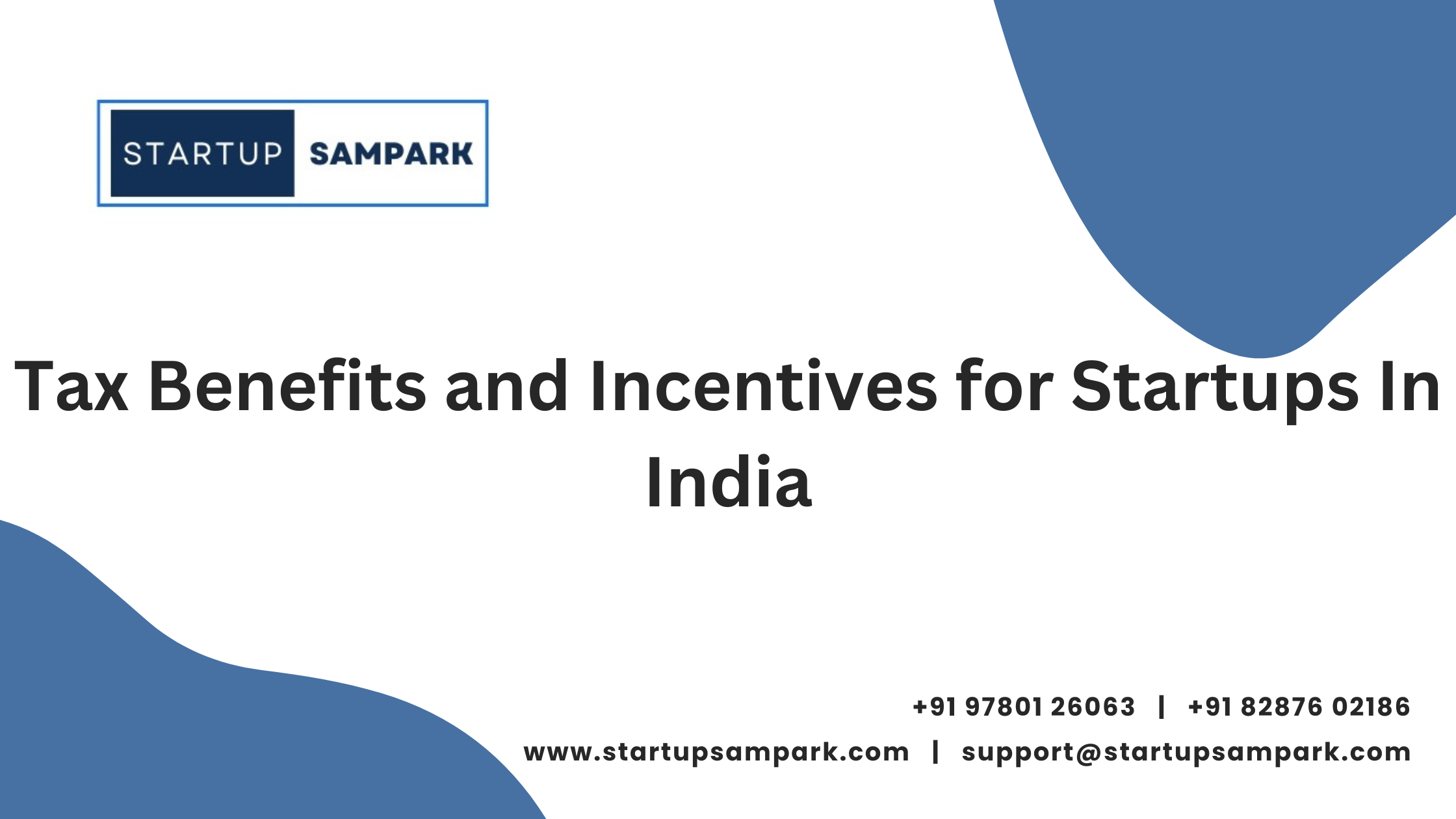Tax Benefits and Incentives for Startups In India
Startups in India can take advantage of various tax benefits and incentives designed to support new businesses and foster innovation. These benefits can significantly impact a startup’s financial health and growth prospects.
1. Income Tax Exemption Under Startup India Scheme
Startups recognized under the Startup India scheme can benefit from a three-year income tax exemption from the date of their incorporation. This exemption applies to startups that meet specific criteria, including being incorporated within the last 10 years and having a turnover of less than ₹100 crore. The goal of this incentive is to reduce the financial burden on startups during their initial years, allowing them to reinvest their savings into growth and development.
2. Reduced Tax Rates for New Companies
Eligible startups can avail themselves of reduced tax rates under Section 115BAB of the Income Tax Act. New manufacturing companies established after October 1, 2019, and commencing operations before March 31, 2024, can benefit from a lower corporate tax rate of 15% (plus applicable surcharges and cess) instead of the standard 25% or 30% rate. This reduced rate is aimed at encouraging investment in the manufacturing sector.
-
 Startup Registration (DPIIT Recognition)₹8,850.00
Startup Registration (DPIIT Recognition)₹8,850.00
3. Exemption from Capital Gains Tax
Startups can benefit from exemptions on capital gains tax under certain conditions. For instance, if an entrepreneur invests their capital gains from the sale of property into the shares of a startup recognized by the Department for Promotion of Industry and Internal Trade (DPIIT), they can claim exemption under Section 54GB of the Income Tax Act. This incentive is designed to encourage investors to fund startups and support their growth.
4. Research and Development (R&D) Deductions
Startups engaged in research and development activities can claim enhanced deductions for R&D expenses under Section 35(2AB) of the Income Tax Act. This includes deductions for in-house R&D expenditure and payments made to approved research institutions. The incentive aims to promote innovation by reducing the effective cost of investing in research and technological advancements.
5. Goods and Services Tax (GST) Benefits
Startups registered under GST can benefit from various schemes and incentives, such as the Composition Scheme, which allows businesses with a turnover up to ₹1.5 crore to pay tax at a reduced rate and avoid complex compliance requirements. Additionally, startups can avail themselves of input tax credit for the GST paid on inputs, which helps lower the overall tax burden on their products or services.
6. Funding and Grants from Government Schemes
The Indian government offers several funding schemes and grants to support startups. Programs like the Startup India Seed Fund Scheme and Atal Innovation Mission provide financial assistance to early-stage startups. These grants can be used for various purposes, including research and development, market entry, and scaling operations. Additionally, various state governments offer region-specific incentives and subsidies to attract and support startups.
By leveraging these tax benefits and incentives, startups can optimize their financial strategies and enhance their growth potential. It’s advisable for startups to consult with financial advisors or tax professionals to fully understand and utilize these benefits effectively.
startup, company incorporation, india
-
 Startup Registration (DPIIT Recognition)₹8,850.00
Startup Registration (DPIIT Recognition)₹8,850.00















Post Comment